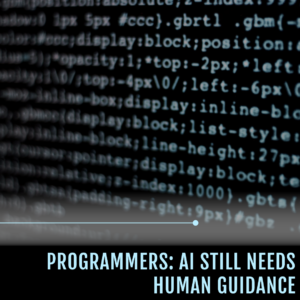Bill Gates Reveals Three Careers That AI Won’t Replace-For Now
Artificial intelligence is revolutionizing industries at an unprecedented pace, and according to Bill Gates, this is only the beginning. The Microsoft co-founder believes AI will reshape the job market, automating countless roles and transforming the global economy. Bill Gates believes three careers are expected to remain relatively untouched by AI’s rapid expansion… at least for now.
A Three-Day Workweek? AI Could Make It Happen
Picture a world where you clock in only three days a week. Does this sound too good to be true? Gates suggests this could become a reality as AI takes over routine tasks, making the traditional 40-hour workweek a thing of the past.
However, not everyone will reap the benefits. As automation replaces millions of jobs, those who fail to adapt may find themselves left behind. The key to job security? Understanding where AI falls short—and which careers are safe from its reach.
Gates identifies three professions that are likely to withstand AI’s dominance. If you work in one of these fields, your future may be more secure than you think.
1. Programmers: AI Still Needs Human Guidance

At first glance, coding might seem like one of the first careers AI would replace. With machine learning models already generating lines of code, is there still a place for human programmers? Absolutely.
AI is powerful but far from perfect. It makes mistakes, struggles with complex problem-solving, and lacks the creativity required for innovation. Developers are needed to debug AI-generated code, refine algorithms, and push technology forward. AI may be able to write code, but it still relies on human expertise to function effectively.
So, if you’re in tech, don’t panic just yet—your skills are not only relevant but increasingly valuable.
2. Energy Specialists: A Sector Too Complex for AI Alone

From renewable energy to power grid management, the energy sector is far too intricate to be fully automated. Engineers, technicians, and strategists play a critical role in ensuring efficiency, safety, and sustainability.
Would you trust an AI to single-handedly control a nuclear power plant or manage an entire electrical grid? Probably not. While AI can assist with monitoring and optimization, human oversight remains essential in preventing catastrophic failures and making strategic decisions.
As the world transitions to cleaner energy solutions, skilled professionals in this sector will continue to be in high demand.
3. Biologists: A Field That Still Needs Human Intuition

AI is already making strides in healthcare—diagnosing diseases, analyzing genetic data, and even outperforming doctors in specific tasks. Why does Gates think biology will withstand the AI revolution?
Because AI, despite its processing power, lacks human intuition, creativity, and the ability to drive groundbreaking discoveries. Scientific research requires more than just analyzing data—it demands the ability to ask the right questions, interpret unexpected results, and innovate in ways that AI simply cannot.
That said, biologists will need to embrace AI as a powerful tool rather than view it as a competitor. Those who integrate AI into their research will have the upper hand in advancing scientific progress.
Adapting to an AI-powered Future
Even Gates acknowledges that predicting the future of work is challenging. AI is evolving at an astonishing rate, and no profession is entirely immune to its influence. The safest bet? Learning how to work alongside AI rather than resisting it.
For those in industries at risk of automation, now might be the time to rethink career paths and develop skills that AI struggles to replicate—such as problem-solving, creativity, and interpersonal communication.
Beyond Today’s AI: What Comes Next?
Gates isn’t just focused on today’s AI models, like ChatGPT. He envisions something far more advanced—a form of AI that can think, learn, and evolve like a human. If this becomes a reality, the impact on society will be even more profound.
Will AI make us smarter, more efficient, even immortal? Is this science fiction, or an impending reality?
One thing is certain: AI is transforming everything. The real question is—are you in one of the safe careers, or is it time to future-proof your skills?
Got thoughts? Share your perspective in the comments!
Proven Ideas to Increase Website Traffic in 2025 – Pakanalysis
ChatGPT vs DeepSeek: A Comprehensive Comparison – Post Of Pakistan












Leave a Reply